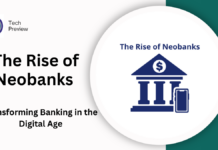Since its creation in 2009, Bitcoin has emerged as a global phenomenon, mostly due to its use as a digital currency and payment system. However, the underlying technology behind Bitcoin – the blockchain – also enables a variety of unconventional applications beyond purely financial transactions. The transparent, immutable, and decentralized nature of Bitcoin’s blockchain provides opportunities to use it in creative ways never initially intended by Bitcoin’s creator, Satoshi Nakamoto.
In this article, we will explore six unusual uses of Bitcoin’s blockchain technology beyond sending and receiving payments: online gambling, timestamping, data storage, identity management, supply chain tracking, and smart contracts. While Bitcoin was designed as a new form of digital cash, developers and entrepreneurs have found methods to utilize its open blockchain ledger and cryptography in a multitude of innovative ways.
Timestamping
An unconventional use of the Bitcoin blockchain is as a timestamping service. By including a hash of a document in a Bitcoin transaction, the document is timestamped to the exact point in time that the transaction was added to the blockchain. This allows proof that the document existed at that time. Timestamping services have utilized the Bitcoin blockchain to provide trusted timestamps for documents including contracts, intellectual property, and evidence in legal proceedings.
Data Storage
The Bitcoin blockchain can also be used as a decentralized data storage medium. By including small amounts of data in the metadata of Bitcoin transactions, information can be stored permanently on the blockchain. Several startups have created decentralized data storage platforms built on top of Bitcoin. While bitcoin’s blockchain is not optimized for large amounts of data storage, it provides a censorship-resistant means of storing small pieces of data in a decentralized and verifiable manner.
Online Gambling
Bitcoin has become widely used in the online gambling industry. Its pseudonymous nature provides privacy, while its fast peer-to-peer transactions allow efficient deposits and payouts from gambling sites. Additionally, some gambling sites like Canadian BonusFinder offer a Bitcoin bonus and other promotions to users depositing in Bitcoin rather than fiat currency. The provably fair and transparent nature of Bitcoin gambling provides advantages over traditional online casinos.
Identity Management
Some developers see Bitcoin’s blockchain as a foundation for self-sovereign digital identity management. By linking customized Bitcoin addresses to identity attributes, users can prove they control certain identifying information. Services like BitID allow Bitcoin users to sign into websites using their Bitcoin private keys as proof-of-ownership of identity attributes. Additionally, other Bitcoin 2.0 projects like Namecoin aim to build decentralized identity systems using blockchain technology.
Supply Chain Tracking
Businesses can use Bitcoin’s blockchain to track goods through supply chains or complex logistic processes. By tying cryptographically signed digital records to physical items tracked with sensors and RFID tags, the movement of products can be immutably recorded on the blockchain at each stage. This allows verification of authenticity and origin as well as tracking of real-world processes digitally. Startups like Chronicled and Skuchain are developing blockchain-based supply chain tools.
Smart Contracts
Bitcoin allows for basic smart contract functionality through its support of native cryptographic scripts. More complex smart contract applications are enabled by Bitcoin sidechains like Rootstock and Omni Layer. These overlay networks add Turing-complete smart contract functionality to Bitcoin’s underlying blockchain. This allows for decentralized peer-to-peer exchanges, financial derivatives, decentralized autonomous organizations, and other applications. Extensions like these expand Bitcoin’s utility beyond simply payments.
As you can see, Bitcoin has a growing number of unconventional applications beyond digital payments. From timestamping to online gambling, Bitcoin’s open blockchain network enables censorship-resistant, peer-to-peer value exchange and verification in a variety of unique ways. As developers continue to build upon the Bitcoin protocol, its use cases will likely continue to expand even further.









